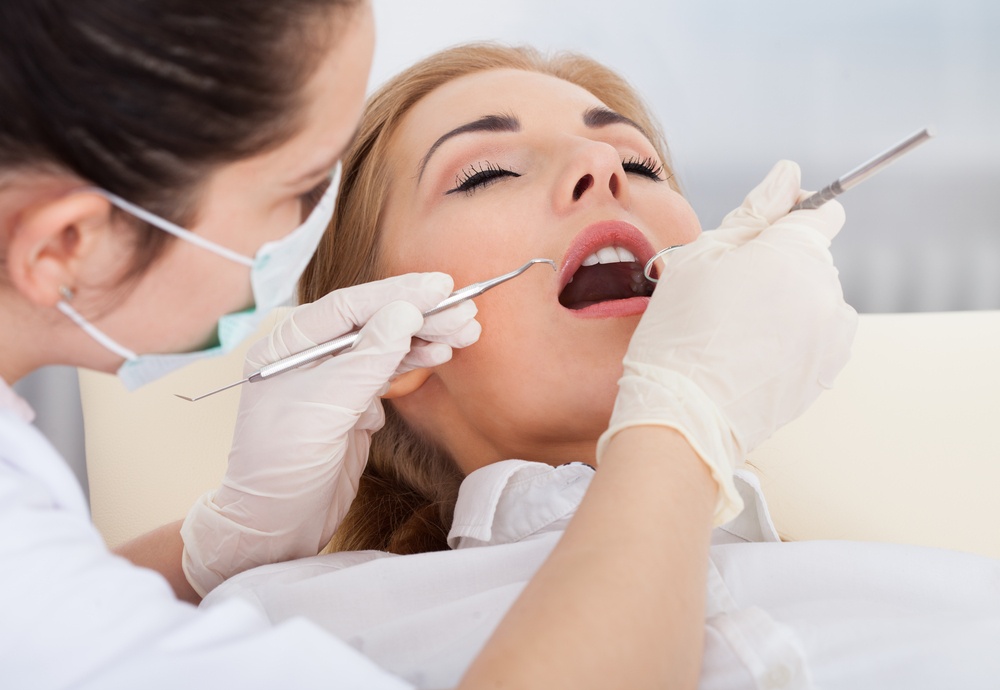
Does a visit to the dentist for tooth extraction trigger anxiety pangs? Rather than deferring such appointments at the peril of further damage, you should consider conscious sedation for tooth extraction. Let us take a deeper look at this medical procedure.
What is conscious sedation dentistry?
This is a dental medical practice where a drug is administered orally to keep the patient relaxed during the procedure. Usually, a pill is given about an hour before the procedure commences. The most common drug is triazolam from the diazepam family. Some dentists, though, may prefer zaleplon or lorazepam too. The medicine induces a depression-like state of the Central Nervous System (CBS), thus enabling smooth execution of the medical process. However, the patient is conscious enough to participate in verbal interaction with the doctors during the proceedings.
The benefits of conscious sedation for tooth extraction or other dental procedure
You are scared of tooth extraction/ dental procedures
This can happen due to unpleasant experiences in the past or a general fear of the process. The waiting time at the dentist may add to the anxiety-driven fear syndrome. For such patients, oral sedation dentistry could be the ideal solution.
You have a hyperactive gag reflex
A sensitive gag reflex may work well for children who may have the propensity to put unwanted things in their mouth. However, some adults may exercise the same instinctive behavior during dental procedures. This can make the experience cumbersome for both the patient and the medical team. Drifting into a stupor-like state influenced by the drug, the patient may comfortably navigate such discomfiture.
You have multiple procedures but maintain a busy schedule
You may have multiple tooth extraction recommended by the dentist to restrict the decaying of more teeth. Alternatively, you may have other dental procedures that may entail repeated visits to the clinic. In such situations, if you want the procedure to take place on a single day, it is relaxing to proceed with conscious sedation.
You are scheduled for a procedure that may have sustained post-treatment pain
It is often observed that the post-treatment trauma can be considerably reduced through conscious sedation dentistry.
You tend to be restless before/during a surgery/ medical procedure
Conscious sedation can greatly lessen the anxiety and give you a comfortable experience at your chosen dental clinic.
You have sensitive teeth
If you have sensitive teeth, then oral sedation may mitigate the level of discomfort. You can ease into a relaxing dental treatment.
You may have related health issues if you avoid timely dental care
Some people may procrastinate prescribed dental treatment due to a few or all of the above reasons. This can lead to more serious health hazards such as
- Plaque build-up– If you are trying to rush out of the dentist’s chamber, you may well carry some plaque back with you. This may turn into tartar, a hard substance that can’t be cleaned through home dental care.
- Tooth decay- Plaque & subsequent tartar build-up may lead to tooth decay if not addressed through proper medical care.
- Tooth loss- Tooth loss could be a result of severe tooth decay or extended gum disease. Both situations can be prevented by regular dental check-ups.
- Bad breath- Accumulation of bacteria, plaque & tartar can lead to unpleasant breath, a condition that can comprise your social & professional status.
- Gum disease- Early-stage gum disease or Gingivitis runs the risk of turning into more periodontal disease if you skip your required visit to the dentist.
- Cavities- Uncleaned or unexamined mouth can lead to the gathering of bacteria, plaque, and tartar. These unwanted elements can erode the teeth of the protective enamel; the result could be tooth cavities. While smaller cavities can be easily filled-up, the bigger ones may require more complex procedures like fitting crowns or root canal treatment.
- Oral Cancer- This can be a creepy menace that eludes your attention. The best alternative is to visit your dentist regularly to find out if there’s any trace of the deadly disease.
- Infection- Even a small cut in the mouth or the gum area can turn infectious. This can aggravate further to more serious dental or general health disorders. Hence, you mustn’t skip your dental check-ups.
Avoiding dropping into the dental clinic can be the precursor to major ailments, such as heart disease, diabetes, stroke, and breast cancer.
Pitfalls of sedation dentistry
- Unlike nitrous oxide and IV administered sedation, oral drugs can take longer to take full effect. Thus the pre-procedure time is prolonged.
- The metabolizing time of pills is different in different individuals. This makes it difficult to anticipate the exact timing for the drugs to kick in.
- Oral sedation can have a dizzying effect. Thus you won’t be able to drive out after the procedure.
- Patients with sleep apnea, obesity, or other pre-existing medical conditions, may have certain issues with oral sedation. They should discuss this with the doctor beforehand to avoid any adverse reaction.
Conclusion
Conscious sedation for tooth extraction can be a relaxing experience for the patient while making the process free-flowing for the expert medical team at work.
